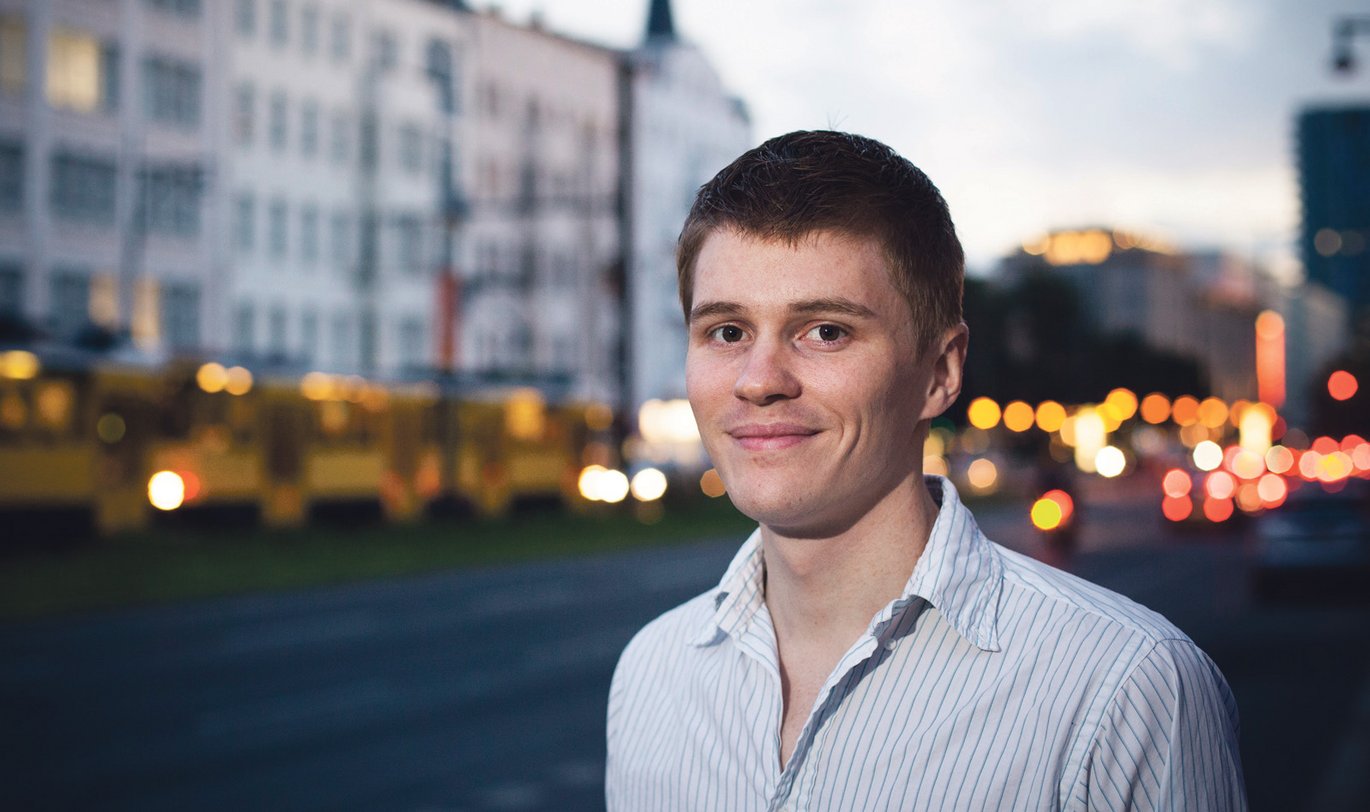The lost graduation
David Vranicar from the USA is a former student of AU, and also used to be the international student writer for UNIvers. He has now written a book about what it’s like to be a graduate in a time of crisis and to travel half-way round the world in search of a steady job.

For millions of young people all over the world, the year 2008 was a major watershed. Before that year they were constantly being told that education was the key to finding a good job. They were told that the baby boomers would be retiring soon, leaving plenty of space on the labour market, and that employers would be queuing up waiting for them as soon as they graduated.
But then the economy collapsed like an over-mortgaged house of cards. Youth unemployment exploded, and many young people graduating in 2008 and afterwards were left facing a major struggle to find a job.
One of the graduates from the class of 2008 who watched his job opportunities wither and die almost at the same time as he was tossing his graduation cap into the air is David Vranicar from the USA. He dreamed of using his major in philosophy and his many student jobs as a writer for magazines in and around Colorado and Kansas as a springboard for a career in journalism.
This former AU student and student writer for UNIvers has now written a book about his experiences: searching in vain for a job on a hard-pressed labour market, moving back home to his parents’ house, and being forced to travel to the other side of the world to China and Denmark to scratch a living somehow. The book is called “The Lost Graduation” because he feels that the crisis has deprived an entire generation of young people of the opportunities that education should provide.
Laugh so you don’t cry
“There are some nuances to my story that are unique. Obviously not everybody goes to Denmark and not everybody goes to China, but the basic predicament that I was in, graduating with a lot of student debt and no job prospects, is a pretty common theme in the US but also increasingly in Europe,” he says.
Is this a description of your generation?
“There are a lot of common statistics about the crisis. People know that student loans are at an all-time high and youth unemployment is really high too. But I tried to give these themes life as well, to show what it was like to go through it.”
You use a lot of humour in describing the problems facing you and your generation. Is this situation funny?
“No, it’s not funny. But in the States we have a saying: ‘we laugh so we don’t cry’. So I really try to have fun with it,” he says.
Emigrated like everyone else
After sending dozens of applications and trying to kick down all kinds of doors leading to jobs in the USA following his graduation, David decided (like many other young people) to emigrate. Initially to China as an English teacher, and then to Europe including a spell at Aarhus University under the Erasmus Mundus programme.
“It wasn’t my plan at all. When I graduated I desperately tried to get a job. I was applying all over the place and not really planning for or looking for anything exotic. Travelling has required an adjustment on my part so I wasn’t so attached to the plans that I had of working in a certain job or a certain spot. I have kind of loosened my grasp on what I am after,” he explains.
Casting your net wide
In his book David uses gallows humour to describe the way he sent applications to hundreds of different media all over the USA and was only inches from getting a job on several occasions – but that each time he was disappointed owing to cut-backs, the suspension of all new appointments, or just simple bad luck.
How do you move on after nearly finding a job but failing at the last minute?
“I don’t know, it really sucked. There really is no magic formula. It was painful at the time to get rejected, but it got even more painful when I realised that nobody was hiring, so missing this job could mean missing out on employment in general.”
One and a half months ago David Vranicar finally found a job, a full-time position working with public relations in Berlin for the next year and a half. So his international search to find a job is over for the time being.
You’re in the class of 2008 – but the situation looks just as bleak for the class of 2011 and the class of 2012. Do you have any good advice for graduates heading out on the same search for a job as you?
“My advice is that you have to scrape and look in places that you might not normally look. I taught children in China and begged for scholarships in Denmark and ended up doing public relations in Berlin. If you cast the net wide enough, you might catch something. But then again, it took me four years to land a job, so I might not be the best person to give advice.”
